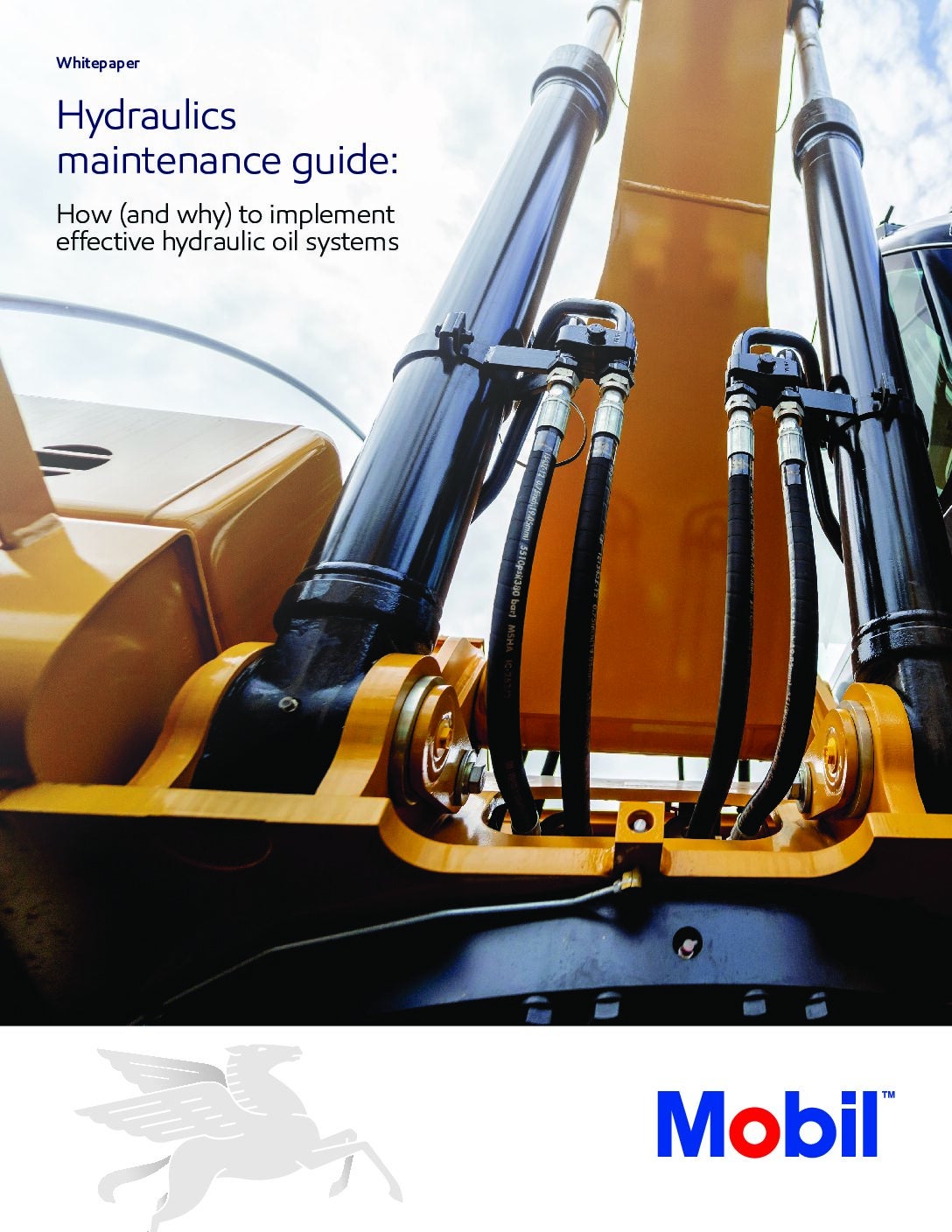
The need to implement effective hydraulic oil systems at mine sites is the focus of a new report by MobilTM which identifies key solutions to optimising operations.
Titled How (and Why) to Implement Effective Hydraulic Oil Systems, the report sets out the four crucial aspects of a hydraulic system’s care and maintenance plan that can help to support high efficiency rates, and pinpoints where operators could be losing energy.
Avoiding mechanical and volumetric losses
According to the report, a typical hydraulic pump is 80 to 90% efficient, with energy lost in two main forms: mechanical losses due to fluid friction and volumetric losses due to internal fluid leakage. High fluid viscosity leads to the highest mechanical losses, and low fluid viscosity results in the highest volumetric losses. However, specialised hydraulic fluids can reduce these losses.
Insights reveal the most effective hydraulic oil for distinct use cases and clarify the difference in hydraulic efficiency between a typical ISO VG 46 anti-wear hydraulic fluid and a specially formulated high VI test fluid. Testing results showed that use of the test fluid led to a 3% to 6% increase in hydraulic efficiency over a typical hydraulic fluid[i].

It also showed that better pumping efficiency can help result in energy savings, lower fuel or energy consumption, as well as faster work times for hydraulically powered equipment.
A further test was conducted on an excavator to demonstrate the impact of hydraulic efficiency and cycle time. The results of the second test are laid out in the report.
Delivering efficiencies in mining operations
The report highlights that mining industry equipment is projected to grow from 16,709 to 18,547 from the end of 2024 to the end of 2030, a net increase of over 1,800 excavators, and an 11% rise over six years. With this growth and investment in new technologies, optimising the efficiencies of operations should be a key consideration for mining operators.
But when it comes to keeping hydraulic equipment running smoothly, operators can face a number of challenges.
Oxidation is a common hurdle. However, hydraulic oils that are resistant to corrosion can allow equipment to have less frequent oil and filter changes compared to standard mineral oil-based products. The report details Mobil’s series of hydraulic formulations with high oxidation resistance, anti-wear properties, and optimal film strength that can help prevent equipment breakdowns in hydraulic systems.
Leakage of hydraulic oils can also be detrimental to the efficiency of hydraulic systems. It is essential, then, that hydraulic fluids are compatible with a range of seal materials. The report reveals an innovative fluid series from Mobil offering optimal seal compatibility properties. Using this formulation can help reduce leakage, ingress of contaminants, prolong component life, reduce slip hazards, and decrease oil losses to the environment.
The report goes on to highlight Mobil’s synthetic oils series, specially formulated to assist with maintenance and help keep hydraulic systems cleaner for longer in comparison with conventional hydraulic fluids. Using this series of hydraulic oils can help to reduce power consumption or increase machine output, both of which can result in cost savings.
Minimising energy losses
For the full, vital insights into the benefits that a specifically designed hydraulic fluid can have on efficiency losses, and to better understand where your systems could be losing energy, download the report below.
[i] Actual results vary depending on the type of equipment used, its maintenance, operating conditions and environment, as well as any previous lubricants used.



